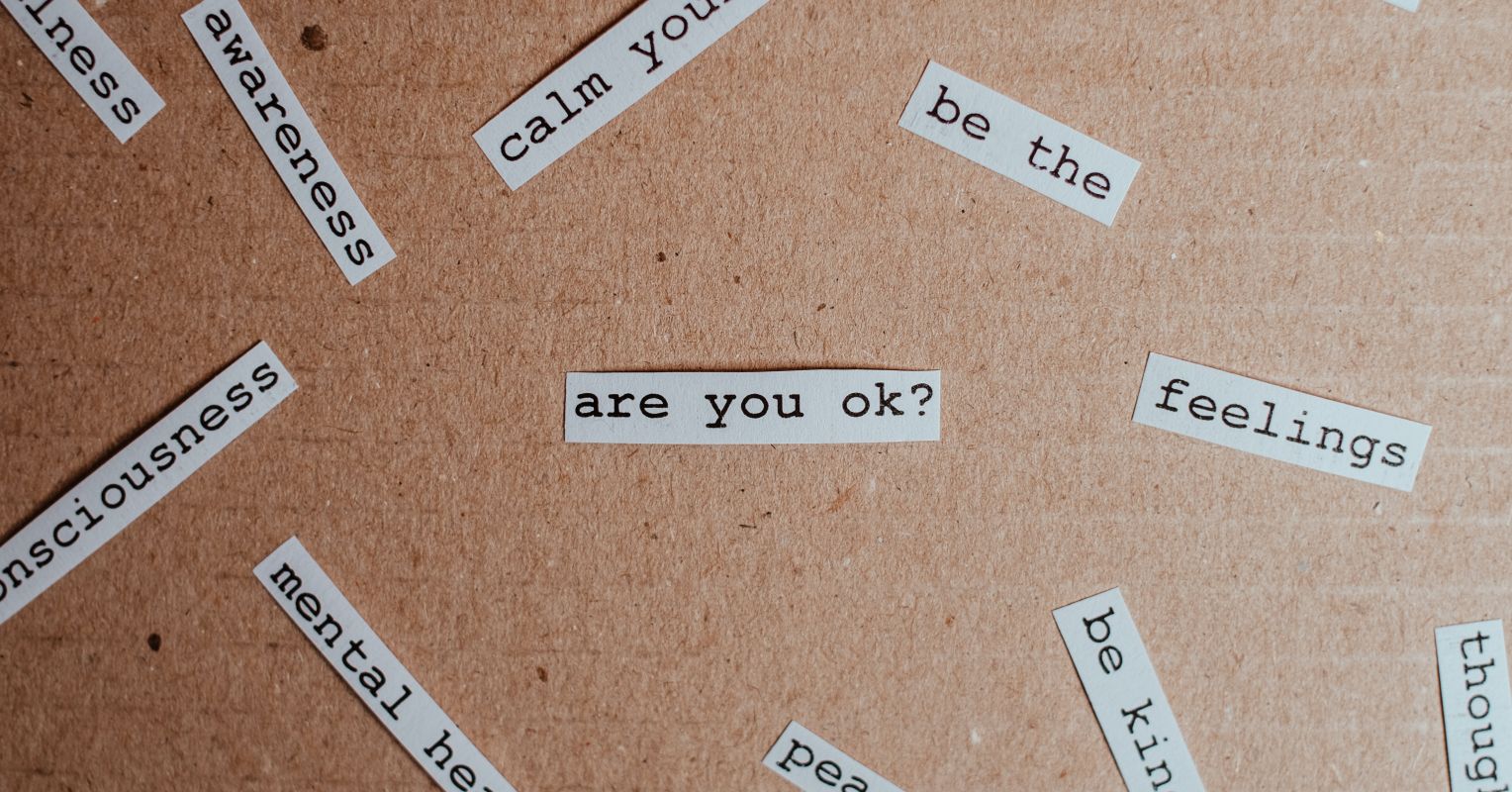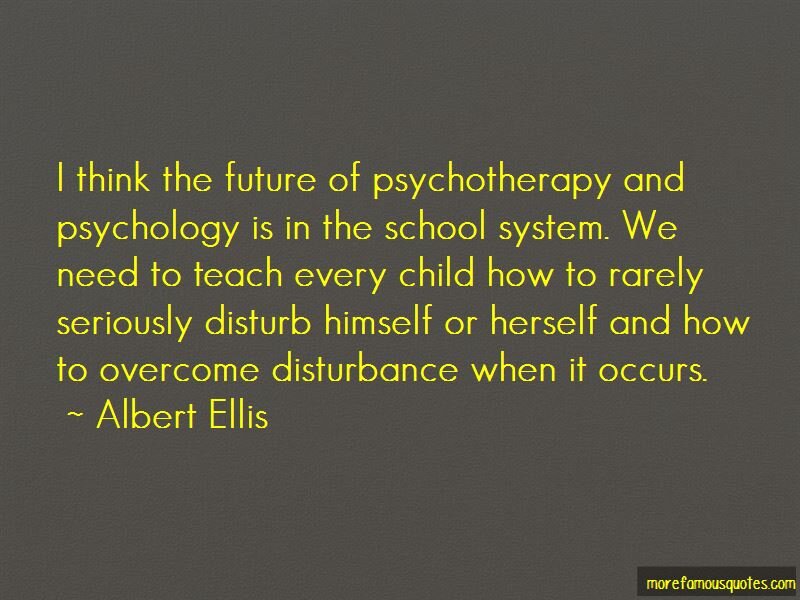- Articles
- Forum Archive
- Psychology, Psychiatry, Psychotherapy, and Health
- Therapy, Therapists, and Self-Help
You are using an out of date browser. It may not display this or other websites correctly.
You should upgrade or use an alternative browser.
You should upgrade or use an alternative browser.
More threads by Daniel E.

 www.psychologytoday.com
www.psychologytoday.com
This difficult work of moving beyond the physical moment, of imagining a different reality than the one that actually exists, is exactly what we ask of many of our clients. Imagine the adolescent living in a neglectful home environment whom we ask to evaluate cognitive distortions or practice progressive muscle relaxation. How can this client engage in this work when their home life is full of comments that sting and silences that cut? Can they hold onto the feeling of security they get from therapy tightly enough to take a risk? Can those feelings protect them even when we aren’t there? We certainly hope so, for it is in that space that we are asking them to grow.

 www.psychologytoday.com
www.psychologytoday.com
"Do you feel like yourself?” and if not, "What is missing that would get you back to feeling fully like you?"
Wow. This is interesting. It wasn't until I stopped seeing any therapists connected with psychiatry that I realized I was seeing some pretty unhealthy professionals. The damage they caused is unreal.
Most of my therapy was about confessing. I was urged over and over again to admit to myself and my family that I was choosing to be manipulative so I could get my own way. That was never the case, but back then, I was so filled with self-doubt because of their messaging that I just blindly followed along. I was first caught up in the mental health system when I was 8 years old. It wasn't until I was aged 37 that I left it. During that time the majority of my therapists kept telling me that I was the cause of my own demise.
Hindsight is 20-20. All I can say is, thank god I survived.
One of the most healing things I ever did was join Toastmasters. It's a public speaking and leadership group. The lesson plans are such that they teach so many new, and amazing skills. Toastmasters saved my life. If you can afford it, I strongly recommend you try it out. It's a huge confidence builder.
Rogers didn't say so, but I'll bet he would have been glad to see less demand for skillful therapists if that meant more people were growing into adulthood having already felt unconditionally accepted.
In my experience I have never found a good therapist. I finally found a decent family doctor back in the mid-1990's, fired the psychiatrist, and got better. I have never looked back.
Last night I was listening to a podcast from Mad in America. It was an interview with a Psychiatrist here in Toronto. He works at Sick Children's Hospital. Listening to him was like a breath of fresh air. It gave me hope. He has an ability to look at the big picture and recognize that, in the majority of cases, the person doesn't have a broken brain. Their problems stem from a confluence of many, many factors in society.
Take a listen.Understanding the Youth Mental Health Crisis
It warmed my heart to hear a psychiatrist speak so sensibly. I plan to write him an email and thank him for making my day.
I was caught up in the mental health system for 22 years. I was prescribed handfuls of drugs - the family doctor called it chemical soup - and I couldn't function. I was hospitalized repeatedly. And all I needed was to have someone listen to me, and have a viewpoint that was somewhat similar to what the Psychiatrist in this interview appears to have.
To me, it seems a lot of therapists are less "client centered" than they advertise, and there are a number of reasons for this (like the "Dr. Phil" culture where the therapist knows best and there is a preconceived ideal way to live and do therapy).
Similarly, some "celebrity" CBT therapists like David Burns (and Albert Ellis before him) seem too regimented and oversimplify the human condition by overselling their tools/processes of therapy:
"In my early professionals years, I was asking the question: How can I treat, or cure, or change this person? Now I would phrase the question in this way: How can I provide a relationship which this person may use for his own personal growth?" ~ Carl Rogers
My guess: For novice therapists at least, a solution-focused approach may be the easiest or most realistic way for them to be more client-centered. A solution-focused approach is strengths-based. It is one way of asking questions in a less biased way. But even then, a lot of therapists who advertise that they are solution-focused are more so in theory than practice. (In any case, better to be eclectic than have a one-size-fits-all, take-it-or-leave-it approach. Just as most people do not use a single approach or perspective for their own self-help.)
"Reiss revives a neglected diagnosis for worrywarts, wallflowers, daydreamers, pessimists, and eccentrics alike: normal. He broadens normality by outlining how abnormal behaviors can arise when life motives are obstructed or personal values contradicted. Reiss lists how various combinations of 16 basic desires lead to dilemmas that eventually bring people to counseling."
~ Science News review of The Normal Personality
~ Science News review of The Normal Personality
Last edited:
“Neuroscience can be seen as offering metaphors that point in a general direction, but don't exactly match anyone's individual experience.”
― Bonnie Badenoch, Being a Brain-Wise Therapist: A Practical Guide to Interpersonal Neurobiology
― Bonnie Badenoch, Being a Brain-Wise Therapist: A Practical Guide to Interpersonal Neurobiology
Last edited:
"People aren’t changed or helped by information, but by inspiration, so I get them in touch with WHY they want to make this change. The why is the fuel, not the ‘how’ or ‘by when.’ Why do you want to leave a job, why do you want to pursue this dream, why do you want to loose the weight, etc."
~ Ariane de Bonvoisin
~ Ariane de Bonvoisin
50 Warning Signs of Questionable Therapy and Counseling
by Noah Rubinstein
"Counselor does not have sufficient and specific training to address your issues and/or attempts to treat problems outside the scope of the practice."
"Therapist focuses extensively on diagnosing without also helping you to change."
"Counselor cannot accept feedback or admit mistakes."
"Therapist focuses on thoughts and cognition at the exclusion of feelings and somatic experience."
"Counselor pushes you into highly vulnerable feelings or memories against your wishes."
"Therapist avoids exploring any of your emotional or vulnerable feelings."
"Counselor does not ask your permission to use various psychotherapeutic techniques."
by Noah Rubinstein
"Counselor does not have sufficient and specific training to address your issues and/or attempts to treat problems outside the scope of the practice."
"Therapist focuses extensively on diagnosing without also helping you to change."
"Counselor cannot accept feedback or admit mistakes."
"Therapist focuses on thoughts and cognition at the exclusion of feelings and somatic experience."
"Counselor pushes you into highly vulnerable feelings or memories against your wishes."
"Therapist avoids exploring any of your emotional or vulnerable feelings."
"Counselor does not ask your permission to use various psychotherapeutic techniques."
Last edited:
"Positive psychology is not remotely intended to replace therapy or pharmacology. So when depressed, anxious or in panic or post-traumatic stress disorder, I’m all for therapies that will work. Positive psychology is another arrow in the quiver of public policy and psychology through which we can raise wellbeing above zero."
"Mental health is so much more than the mere absence of mental illness."
~ Martin Seligman
"Mental health is so much more than the mere absence of mental illness."
~ Martin Seligman
Last edited:
"If treatment ends pre-maturely, with either a client never returning to treatment or a helper 'firing' them out of frustration, there is a tendency for the client to take the fall."
~ Scott Spradlin
~ Scott Spradlin
"The dialectical framework, which embraces contradictions and gives you a way of seeing that life is pregnant with creative tensions, allows for your discovery of your limits and possibilities, gives you a way of seeing the dynamic nature of reality that is anything but sitting still."
~ Scott Spradlin
~ Scott Spradlin
"My therapist wouldn't accept payment today. I told her about how tough it'll be on Christmas due to no money. She wouldn't accept the payment today and said to buy my kids something...Honestly the nicest thing anybody has done for us in a long time."
~ Anonymous
~ Anonymous
"I am 80 years old, and I am still in therapy. I see someone every week here in Los Angeles, who I have seen on and off for nearly 20 years. I'm still searching myself, still asking questions of myself, and that is certainly the case when I try to recall what it felt like to be in the middle of violence, and there being nothing I can do."
~ Patrick Stewart
~ Patrick Stewart
"Strength isn't always enough when the weight of the world is pulling you under."
~ unknown
~ unknown

"If This Is the Apocalypse, Should I Still Be in Therapy?"
Some clients are asking the questions that are in the back of everyone's minds.
This difficult work of moving beyond the physical moment, of imagining a different reality than the one that actually exists, is exactly what we ask of many of our clients. Imagine the adolescent living in a neglectful home environment whom we ask to evaluate cognitive distortions or practice progressive muscle relaxation. How can this client engage in this work when their home life is full of comments that sting and silences that cut? Can they hold onto the feeling of security they get from therapy tightly enough to take a risk? Can those feelings protect them even when we aren’t there? We certainly hope so, for it is in that space that we are asking them to grow.

The 2 Most Important Questions in Psychology That No One Asks
What should patients or clinicians say when they don't know where to begin? There are some important questions that easily open the door.
"Do you feel like yourself?” and if not, "What is missing that would get you back to feeling fully like you?"
wheelchairdemon
Member
50 Warning Signs of Questionable Therapy and Counseling
by Noah Rubinstein
"Counselor does not have sufficient and specific training to address your issues and/or attempts to treat problems outside the scope of the practice."
"Therapist focuses extensively on diagnosing without also helping you to change."
"Counselor cannot accept feedback or admit mistakes."
"Therapist focuses on thoughts and cognition at the exclusion of feelings and somatic experience."
"Counselor pushes you into highly vulnerable feelings or memories against your wishes."
"Therapist avoids exploring any of your emotional or vulnerable feelings."
"Counselor does not ask your permission to use various psychotherapeutic techniques."
Wow. This is interesting. It wasn't until I stopped seeing any therapists connected with psychiatry that I realized I was seeing some pretty unhealthy professionals. The damage they caused is unreal.
Most of my therapy was about confessing. I was urged over and over again to admit to myself and my family that I was choosing to be manipulative so I could get my own way. That was never the case, but back then, I was so filled with self-doubt because of their messaging that I just blindly followed along. I was first caught up in the mental health system when I was 8 years old. It wasn't until I was aged 37 that I left it. During that time the majority of my therapists kept telling me that I was the cause of my own demise.
Hindsight is 20-20. All I can say is, thank god I survived.
One of the most healing things I ever did was join Toastmasters. It's a public speaking and leadership group. The lesson plans are such that they teach so many new, and amazing skills. Toastmasters saved my life. If you can afford it, I strongly recommend you try it out. It's a huge confidence builder.
I am a big fan of therapist-moderated peer support, e.g. group therapy. Last year, I was in a Zoom support group for OCD and also one on neurodiversity. That seemed to help on a session-by-session basis more than anything in the last few years (other than this forum, of course).
I get most of my therapy now from my pets, including my backyard chickens. My two favorite therapists were in rural Florida many years ago -- at least a decade ago and 2,000 miles from where I am now. Maybe it was the water or the more laid back nature of the place and time.
or the more laid back nature of the place and time.
So far, I haven't been impressed by the therapists in Arizona, especially the one who was almost insisting that my OCD was more like autism. In any case, I didn't relate to them very well.
I get most of my therapy now from my pets, including my backyard chickens. My two favorite therapists were in rural Florida many years ago -- at least a decade ago and 2,000 miles from where I am now. Maybe it was the water
So far, I haven't been impressed by the therapists in Arizona, especially the one who was almost insisting that my OCD was more like autism. In any case, I didn't relate to them very well.
Last edited:
Parental Love: Conditional vs. Unconditional
When a Parent's "I Love You" Means "Do as I Say" By ALFIE KOHN, New York Times September 15, 2009 More than 50 years ago, the psychologist Carl Rogers suggested that simply loving our children wasn't enough. We have to love them unconditionally, he said - for who they are, not for what they...
forum.psychlinks.ca
Rogers didn't say so, but I'll bet he would have been glad to see less demand for skillful therapists if that meant more people were growing into adulthood having already felt unconditionally accepted.
"There’s a principle in family systems theory: when the system is locked in dysfunction, change something, anything, because even random change is better than no change."
~ David McPhee, PhD
~ David McPhee, PhD
wheelchairdemon
Member
So far, I haven't been impressed by the therapists in Arizona, especially the one who was almost insisting that my OCD was more like autism. In any case, I didn't relate to them very well.
In my experience I have never found a good therapist. I finally found a decent family doctor back in the mid-1990's, fired the psychiatrist, and got better. I have never looked back.
Last night I was listening to a podcast from Mad in America. It was an interview with a Psychiatrist here in Toronto. He works at Sick Children's Hospital. Listening to him was like a breath of fresh air. It gave me hope. He has an ability to look at the big picture and recognize that, in the majority of cases, the person doesn't have a broken brain. Their problems stem from a confluence of many, many factors in society.
Take a listen.Understanding the Youth Mental Health Crisis
It warmed my heart to hear a psychiatrist speak so sensibly. I plan to write him an email and thank him for making my day.
I was caught up in the mental health system for 22 years. I was prescribed handfuls of drugs - the family doctor called it chemical soup - and I couldn't function. I was hospitalized repeatedly. And all I needed was to have someone listen to me, and have a viewpoint that was somewhat similar to what the Psychiatrist in this interview appears to have.
And all I needed was to have someone listen to me, and have a viewpoint that was somewhat similar to what the Psychiatrist in this interview appears to have.
To me, it seems a lot of therapists are less "client centered" than they advertise, and there are a number of reasons for this (like the "Dr. Phil" culture where the therapist knows best and there is a preconceived ideal way to live and do therapy).
Similarly, some "celebrity" CBT therapists like David Burns (and Albert Ellis before him) seem too regimented and oversimplify the human condition by overselling their tools/processes of therapy:
"In my early professionals years, I was asking the question: How can I treat, or cure, or change this person? Now I would phrase the question in this way: How can I provide a relationship which this person may use for his own personal growth?" ~ Carl Rogers
My guess: For novice therapists at least, a solution-focused approach may be the easiest or most realistic way for them to be more client-centered. A solution-focused approach is strengths-based. It is one way of asking questions in a less biased way. But even then, a lot of therapists who advertise that they are solution-focused are more so in theory than practice. (In any case, better to be eclectic than have a one-size-fits-all, take-it-or-leave-it approach. Just as most people do not use a single approach or perspective for their own self-help.)
Last edited:
“Gestalt means whole, and so are you.” ~ J. Deelstra
“Learning is the discovery that something is possible.” ~ F. Perls
“Learning is the discovery that something is possible.” ~ F. Perls
Replying is not possible. This forum is only available as an archive.
Similar threads
- Replies
- 64
- Views
- 26K
- Replies
- 5
- Views
- 4K
- Replies
- 15
- Views
- 5K

